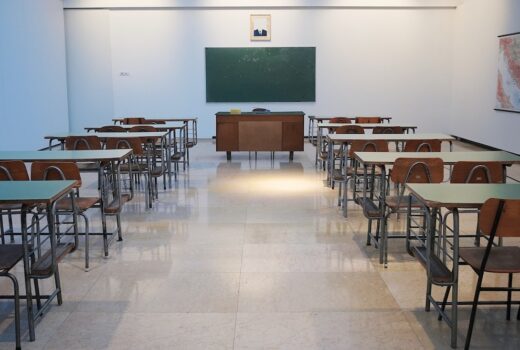De ultieme revolutie in China

In een opiniestuk in de gezaghebbende China Dailyzet hij zijn visie op de investeringen en culturele veranderingenuiteen, die nodig zijn om ook van China een kennissamenleving temaken. (Het werd ook in Science afgedrukt.) Detekst leest u hier:
‘The history of modernization is in essence a history of scientificand technological progress. Scientific discovery and technologicalinventions have brought about new civilizations, modern industries,and the rise and fall of nations. China is now engaged in amodernization drive unprecedented in the history ofhumankind.
15% high-tech
Over the past half century, China has made greatachievements in basic science and technological innovation. It nowranks among the top nations in the annual number of paperspublished internationally and patent applications filed. China hasalso made achievements in such areas as manned spaceflight,high-performance computers, super-large-scale integrated circuits,and third-generation telecommunications technology. High-techindustry has experienced rapid growth, accounting for over 15% ofthe manufacturing industry.
Francis Bacon, the 16th-century English philosopher, referred toscience as a means to improve mankind’s lot. Today, the hybrid ricevariety developed by Chinese scientists has been adopted forplanting in over three million hectares and has become a “goldenkey” to meeting China’s own food needs and boosting world cerealproduction. Scientific and technological development in the realmof health has also increased average life expectancy in China tothat of developed countries.
To encourage further innovation, the Chinese government hasformulated a Mid- to Long-Term Plan for Development of Science andTechnology (2006-2020), which highlights research in the basicsciences and frontier technologies, with priority given to energy,water resources, and environmental protection. We strive to developindependent intellectual property rights in areas of informationtechnology and new materials, while strengthening the applicationof biotechnology to agriculture, industry, population, andhealth.
Diversiteit in talent aantrekken
The future of China’s science and technology dependsfundamentally on how we attract, train, and use young scientifictalents today. Thus, at the core of our science and technologypolicy is attracting a diverse range of talents, especially youngpeople, into science and providing them with an environment thatbrings out the best of their creative ideas.
In the field of science and technology, we will intensifyinstitutional reform, restructure scientific research, rationallyallocate public resources, and enhance innovation capability. Weadvocate free academic debate under a lively academic atmosphere,where curiosity-driven exploration is encouraged and failuretolerated.
Science has no boundaries. China’s endeavors in science andtechnology need to be more integrated with those of the world, andthe world needs a China that is vibrant and able to deliver more inscience and technology. Just as collisions generate sparks,exchange and communication enrich imagination and creativity. ManyChinese scientists have stepped into the international academicarena, where they and their foreign colleagues learn from eachother and jointly contribute to the worldwide development ofscience and technology.
Ratio en cultuur beide
To encourage the learning and application of science amongthe general public, we need to embrace a scientific culture bypromoting scientific rationality while cherishing Chinese culturalheritage. Enlightened by science, the rich and profound Chineseculture is bound to shine more gloriously.
I firmly believe that science is the ultimate revolution. At a timewhen the current global financial turmoil is dealing a heavy blowto the world economy, it has become all the more important to relyon scientific and technological progress to promote growth in thereal economy.
Economic and social development must rely on science andtechnology, and science and technology must serve economic andsocial development. We will rely on science and technology topromote economic restructuring, transform development patterns,safeguard food and energy security, and address global climatechange. We are confident that China will reap a rich harvest inscience and technology and that this will have positive andfar-reaching effects on human civilization and the well-being ofhumankind.
Wen Jia Bao is the premier of the State Council ofChina
Meest Gelezen
Vrouwen houden universiteit draaiende, maar krijgen daarvoor geen waardering
Wederom intimidatie van journalisten door universiteit, nu in Delft
‘Burgerschapsonderwijs moet ook verplicht worden in hbo en wo’
Raad van State: laat taaltoets nog niet gelden voor hbo-opleidingen
Hbo-docent wil wel rolmodel zijn, maar niet eigen moreel kompas opdringen



